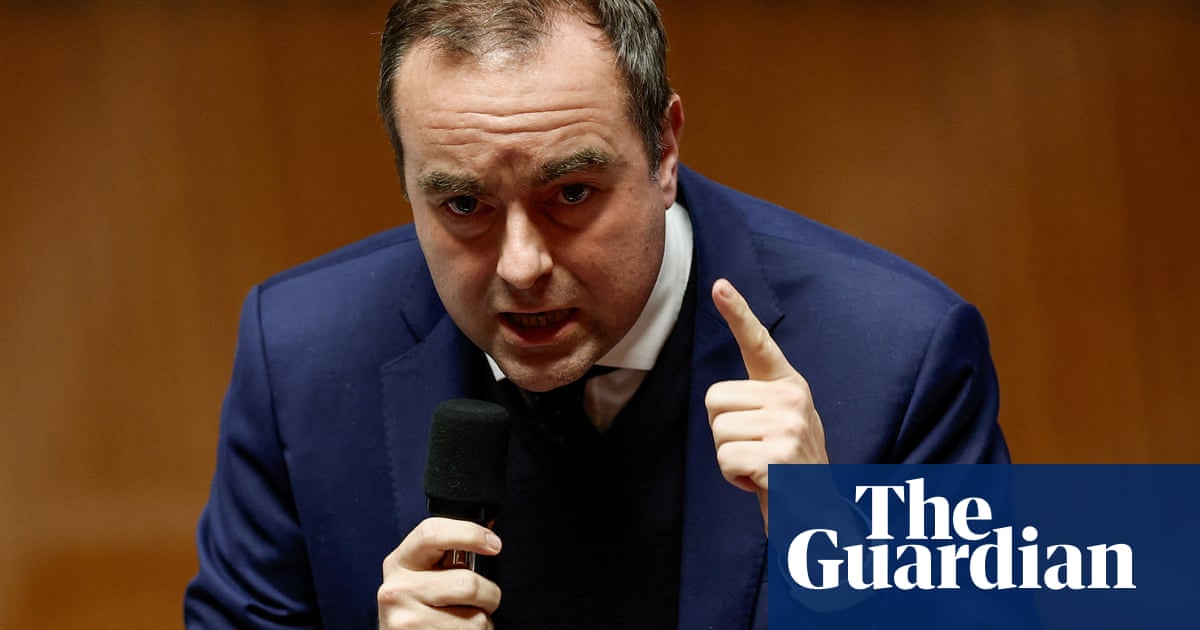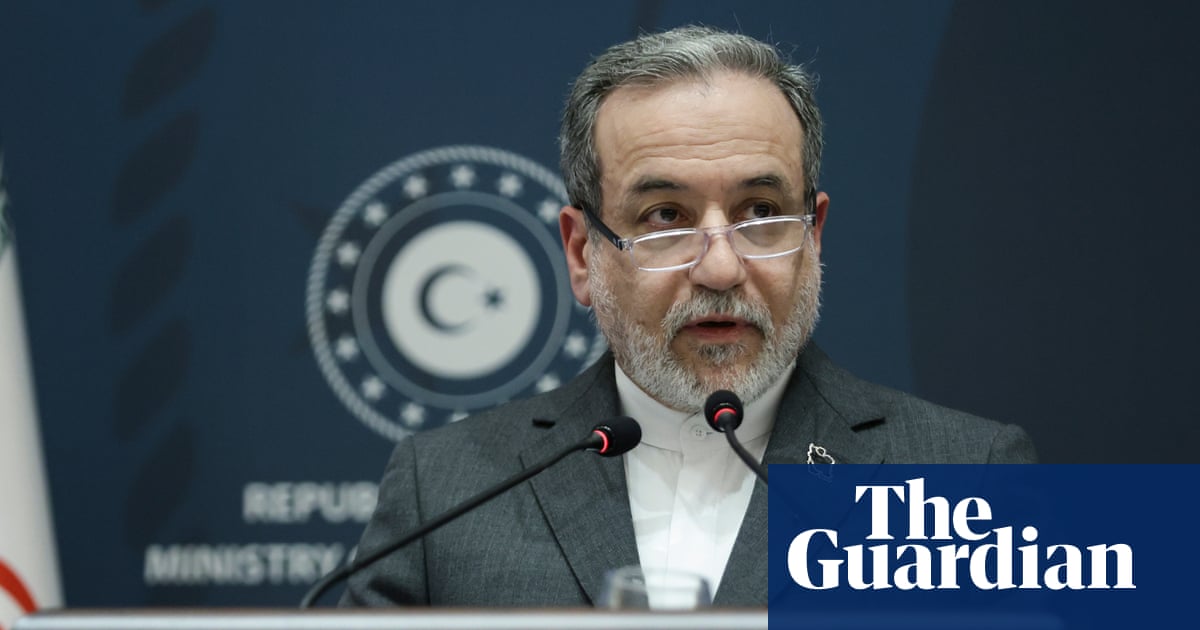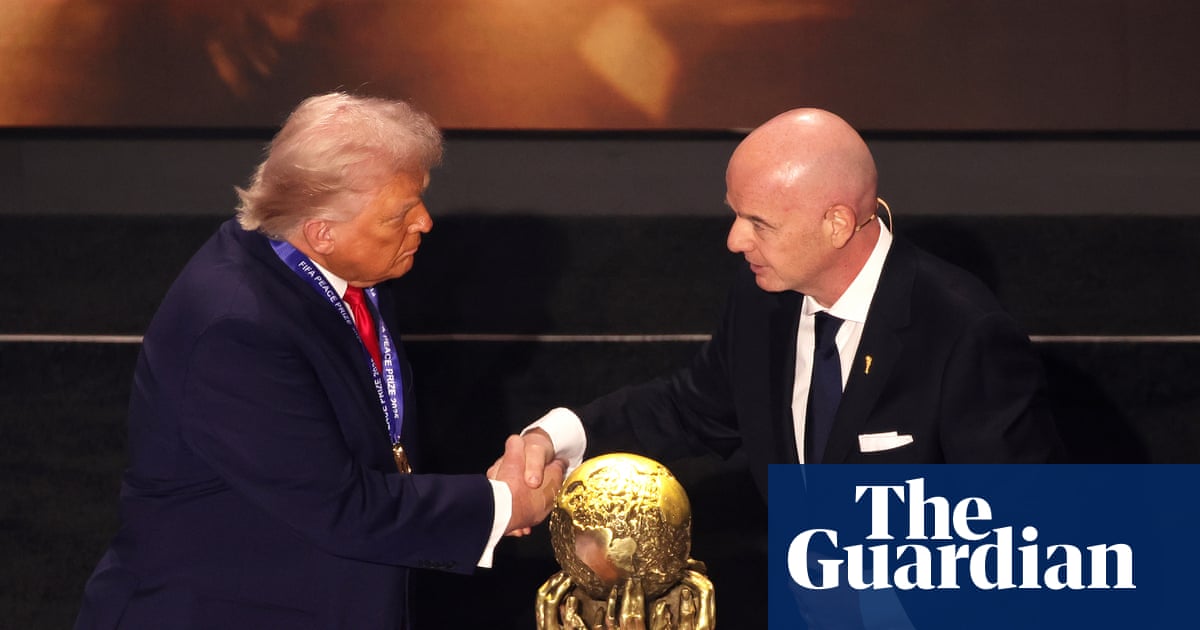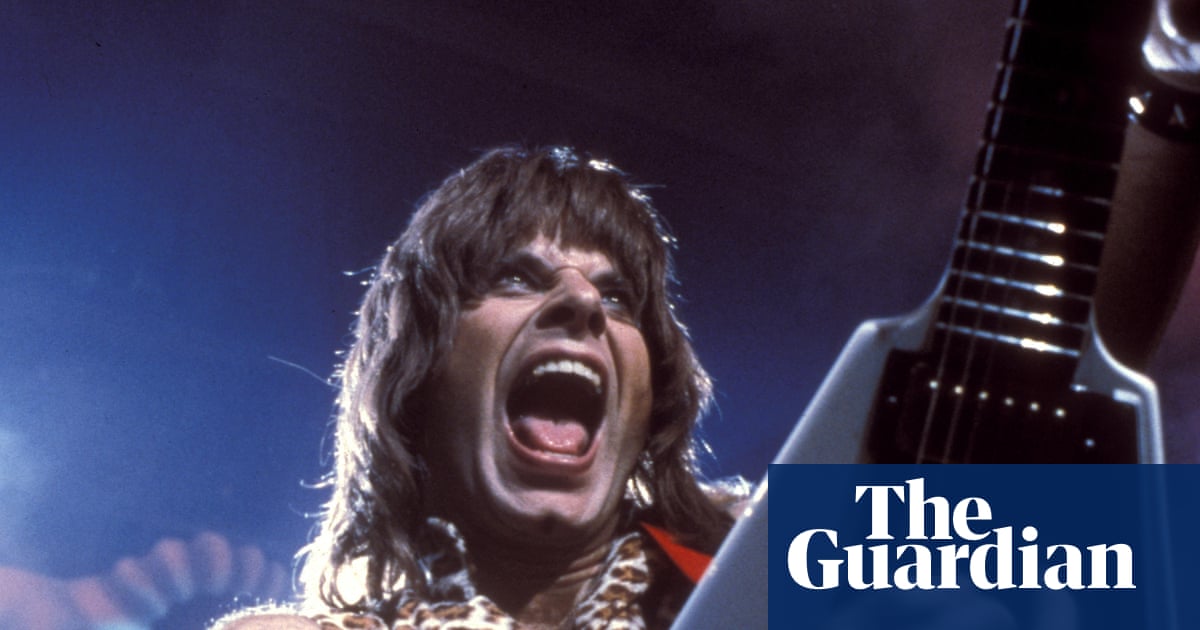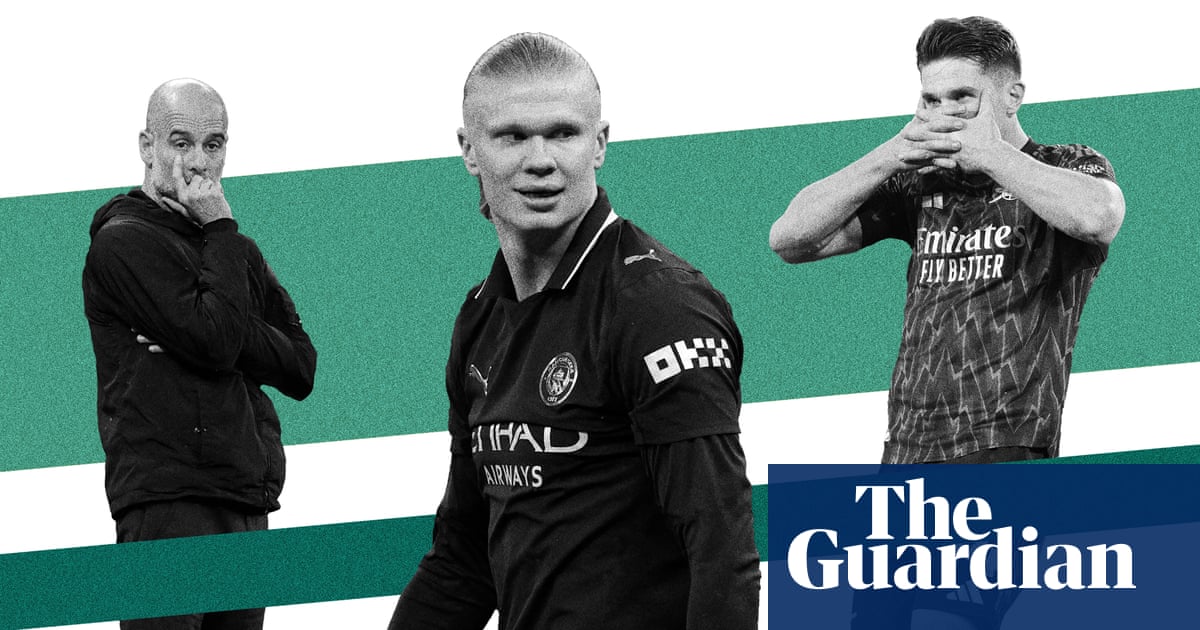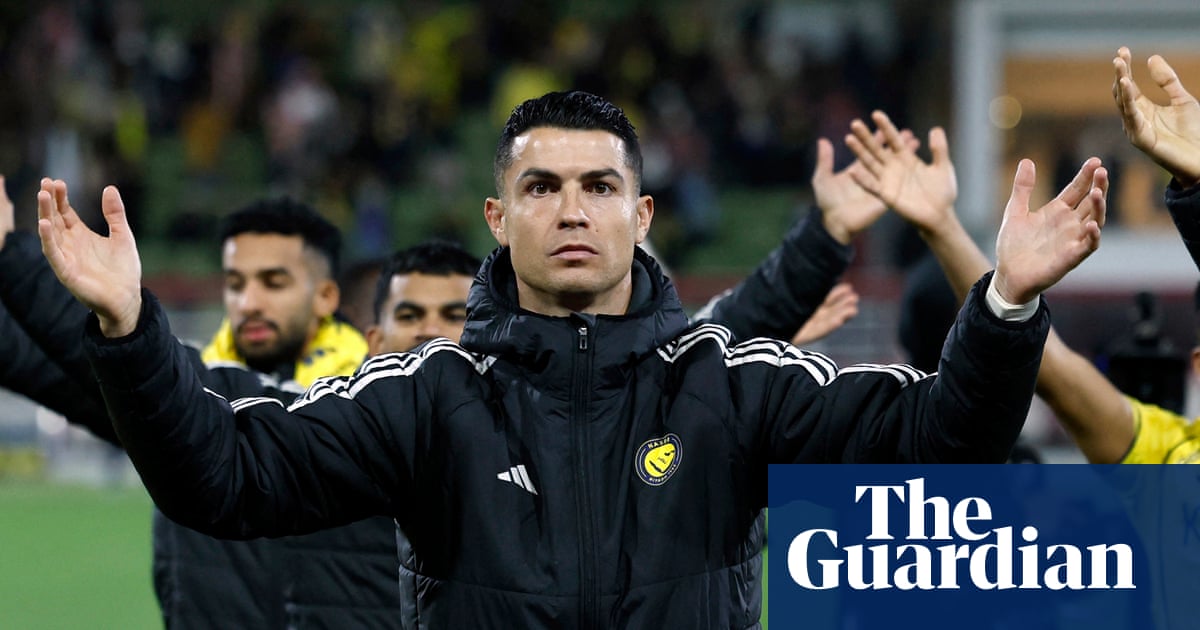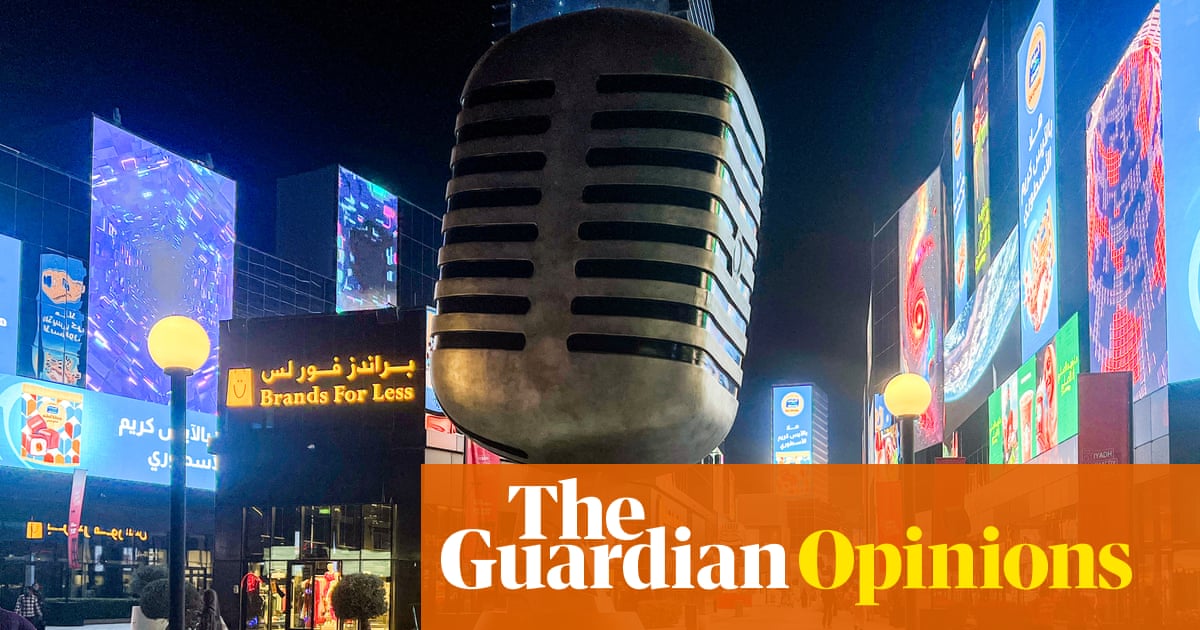America was built by men like Robert Grainier, the stoical lumberjack at the heart of Train Dreams. Grainier cuts the trees and tames the forest and lays the ground for railroads and towns. Technically, then, Train Dreams is a western. But he never once ropes a steer, shoots a bandit or circles the wagons ahead of a Comanche attack on the plains. The small print tells a different kind of story.
It was a hard film to pitch, admits the actor Joel Edgerton: an uphill struggle; plenty of studio trepidation. “You go into the meeting and say: ‘Well, it’s a movie about a guy who’s not really making choices for himself. He’s kind of pushed around by life.’”
“He’s not a big hero,” agrees the director, Clint Bentley. “Also, there are some supernatural elements.”
“It’s a spiritual movie,” adds Edgerton. “You have to be patient.”
Bentley play-acts the role of a studio boss. “It sounds beautiful,” he says. “It sounds lovely. We’ll pass.”

I’m delighted they got it across the line. Train Dreams is beautiful, spiritual, but it is also rugged and pitiless and resolutely earthbound, planted in the soil of the Pacific north-west and lovingly grown out of Denis Johnson’s 2011 novella. Edgerton plays Grainier, the itinerant logger in 1900s Idaho, dwarfed by towering fir trees and white pine. Each job takes him deeper into the northern woods, further away from his wife and infant daughter, Katy. “I feel like I’m missing her whole life,” he complains.
I meet Edgerton and Bentley in a London hotel, their latest stop in an ongoing international press tour. Edgerton explains he has just arrived from LA and is leaving for New York in the morning, which means he’ll be away from his kids for the next two weeks. “And as privileged as I am, I still can’t reconcile my working life with my family,” he tells me. “I mean, surely I can rule the world. I’m an important actor, I can do whatever I want. But no. I’m a contract worker and the kids have to be in school. And if they don’t go to school then I go to jail.”
So what is he saying: that Hollywood film-making is the business class version of logging? “Yeah, that’s what I’m saying,” he laughs. “This is true. Woe is me.”
Edgerton has been on the circuit for 30 years, mostly working as a hired hand but occasionally developing and directing his own movie projects. He first read Train Dreams a decade ago, discovered that the film rights were taken and reluctantly moved on. By the time Bentley tapped him to play the lead role, he was settled in London with his partner, Christine Centenara, a journalist, and had recently welcomed the arrival of twins. Midway through the story, Grainier’s life takes a tragic turn. Rereading Johnson’s novella, Edgerton found that it spoke to him more than ever.
“I don’t have the tragedy of Robert inside me, but I’ve imagined it,” he says. “As soon as you become a father you imagine it and it’s terrifying. In the lead-up to our kids coming into the world, there was a moment when we thought they were not going to make it. And I find that when I think about those days there’s a pit in my stomach that will live there for ever.”
Train Dreams is Edgerton and Bentley’s joint venture, but it is also a collaboration between Bentley and his regular creative partner, Greg Kwedar. The two men have a policy of sharing writing duties while taking turns to direct. Kwedar shot their previous outing, the prison drama Sing Sing (2023), whereas Bentley took the reins on Jockey (2021), which trailed an ageing horseman on one last lap of the track. Bentley’s own father was a journeyman jockey who lived out of a suitcase and survived race to race. Jockey, he concedes, was semi-autobiographical. Perhaps on some level Train Dreams is as well.
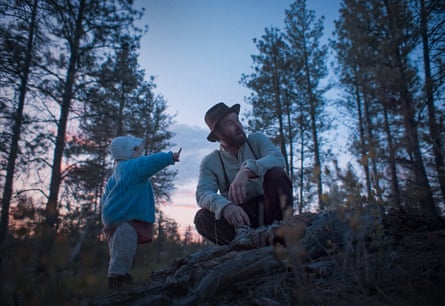
“As a film-maker you’re often the last one to know what interests you until someone tells you,” he says. “But sure, both Jockey and Train Dreams are about a man who’s away from his family. My dad certainly lived that life. Some of it I lived alongside him – dragged from track to track, babysat by the trainers. But a lot of it I didn’t; he was gone for long stretches. And then I myself turned into some version of that. That’s a hard thing to reconcile.”
Like Grainier, like his father, Bentley moves from one job to the next. His wife and young son live in Texas and await his return.
“I love being with my family,” he says. “But I love being on the road. If I didn’t have a family, I’d be happy living in Motel 6s for the rest of my life.”

It’s the classic cowboy vacillation, the ambivalence at the heart of most movie westerns: the yearning for home versus the call of the wild. “Not to get too psychoanalytical here, but being on Train Dreams did make me feel like my dad,” Bentley says. “My son was just at the age where my absence from home made an impact. He knew I was gone. And one morning, brushing my teeth, it was like I connected to my dad in his motel, brushing his teeth in the mirror. He’s passed on; I can’t talk to him. But I suddenly understood him in a way that I hadn’t before.”
Men don’t talk – perhaps that’s partly the problem. Edgerton has always been good at playing tough, taciturn types, whether it’s the navy commander in Zero Dark Thirty, the enigmatic lord in The Green Knight, or brutish Tom Buchanan in Baz Luhrmann’s The Great Gatsby. But I’ve never seen him so magnificently tight-lipped – nor so purely heartbreaking – as he is in Train Dreams.
If Grainier has an ancestor, Edgerton thinks it was probably his role in Jeff Nichols’ fact-based 2016 drama Loving. Edgerton played Richard Loving, a construction worker in 1950s Virginia who is arrested for marrying a local black woman. He says: “At the end of the first week of shooting, I like to check in with my directors, because I have that actor’s paranoia. So I always say to them: ‘Please tell me if I’m doing anything that you want done differently.’ And on Loving, Jeff said: ‘I want to understand you less.’ That was a big help. The character was nonverbal. Robert is as well. So it focuses you in a completely different way.”
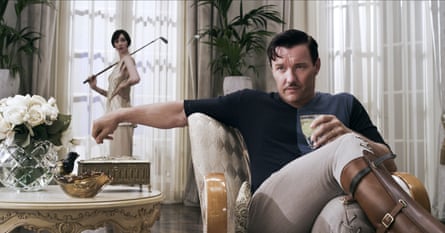
All of which makes perfect sense. Even so, I’m surprised he has to go cap-in-hand for direction. Shouldn’t the director be directing? The job description is in the title. “Yeah, well, why I ask that is because there are directors who are too scared to communicate with their actors,” he says. “Hopefully I’m not one of the terrifying ones. But I know of some high-profile actors where the director figures, ‘It’s not my place to tell you what to do,’ and doesn’t say anything for the entire film. That’s something that Hollywood is guilty of a lot: the actor is king. Maybe king is the wrong analogy. But the director should always be the head of the household. I worry that some directors feel they’re not allowed to talk to their actors. And I worry that some actors feel that the director doesn’t have to do anything except set up the shots.”
In other words, people need to communicate more. “Absolutely,” he says. “And what’s the point of being a director if you don’t talk to your actors?”
Having slogged so hard to get Train Dreams finished, Edgerton and Bentley are free to sit back and drink in the acclaim. The picture is amassing rave reviews and is being tipped as a dark horse Oscar contender. The veteran director Paul Schrader recently called it “a reverie” and “a film designed to envelop you”, although he also mistakenly called it “Traffic Dreams”, which suggests the publicity campaign has some way left to run. But if Train Dreams tells us anything, it’s that life is short and success is fleeting. Grainier, for instance, spends his days chopping giant 500-year-old spruce only to see his wooden trestle bridges replaced by ones made of steel. Every human achievement risks becoming faded and forgotten. That goes for railroads and families, and motion pictures as well.

Edgerton nods. “One of the reasons that I love working in film is that you think a film will live for ever. This was a movie shot by real people in the woods. The aliveness of it all – the realness of it all – is preserved. My dream is that it becomes like bespoke boot-making or vinyl, and that humans will always want to interact with human-made things. But who knows, maybe not. Because now you can create the woods on a laptop. You can make a whole film out of zeros and ones.”
That’s tragic, of course, but it also makes the work feel more precious. He says: “Probably one day we’ll see the last analogue movie. And we won’t know that it is until it’s already been and gone.”

 2 months ago
74
2 months ago
74

